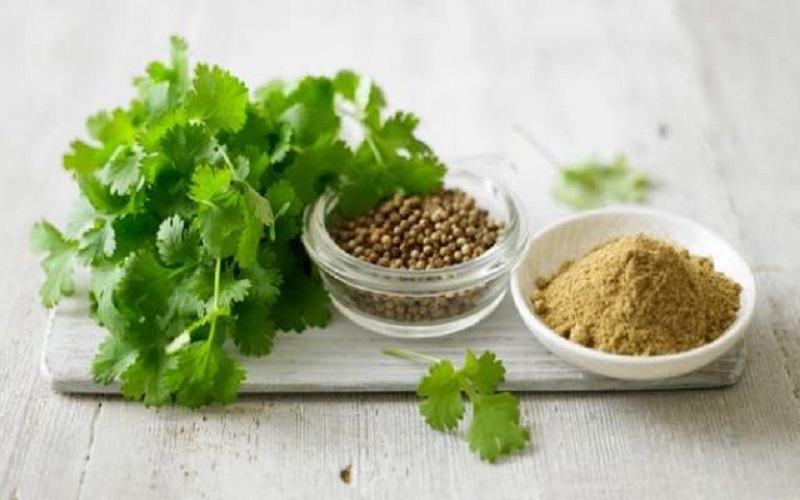
Coriander (Coriandrum sativum), commonly known as Cilantro or Dhania, is a powerful herb with many health benefits. This plant is rich in micronutrients and nutritional elements. It contains dietary fiber, vitamins and minerals like calcium, magnesium, sodium and potassium. Coriander is a rich source of many essential vitamins like folic acid, vitamin C, vitamin A and beta-carotene. Studies have shown that coriander leaves and seeds contain 30% of the daily recommended amount of vitamin C.
Aside from being used in cooking, coriander leaves and seeds strengthen the stomach. This herb is an excellent source of iron, phytonutrients and flavonoids. It protects the body against urinary tract infections, prevents nausea, lowers blood sugar levels and aids in digestion. Coriander juice is beneficial in treating dysentery, colitis, indigestion and hepatitis. When mixed with pinch of turmeric powder, it serves as a powerful remedy against blackheads and pimples. It helps in the reduction of fats and thus aids weight loss.
Some of the acids present in coriander, like linoleic acid, oleic acid, palmitic acid, stearic acid and ascorbic acid (vitamin-C) are very effective in reducing the cholesterol levels in the blood. They also reduce the level of bad cholesterol (LDL) deposition along the inner walls of the arteries and veins, which can lead to serious cardiovascular issues like artherosclerosis, heart attacks, and strokes. Consuming coriander has been shown to positively reduce blood pressure in many patients suffering from hypertension. The interaction of Calcium ions and cholinergic, a neurotransmitter in the peripheral and central nervous system, more commonly know as acetylcholine.
Coriander has unusually high levels of dodecenal, a natural compound that is actually twice as powerful of an antibiotic than the leading treatment for salmonella-based illness. By adding coriander into your normal diet, you protect your body from horribly uncomfortable, and even fatal, illnesses relating to this deadly bacteria. Coriander is commonly found in salsa to add flavor, so dip a chip and protect yourself from food poisoning, the most common way of describing the effects of salmonella.
Adding even a small amount of coriander to your diet can help to keep your bones healthy and strong for years to come. Calcium is particularly present in the center leaves of coriander, so aim for that part of the plant if bone health is your focus!
Coriander helps cure ulcers, inflammation, spasms, while acting as an expectorant and protecting the liver. It is anticarcinogenic, anticonvulsant, antihistaminic and hypnotic. Coriander is believed to be a natural aphrodisiac and traditionally, it was widely used in certain combinations with other herbs to enhance a person’s libido.